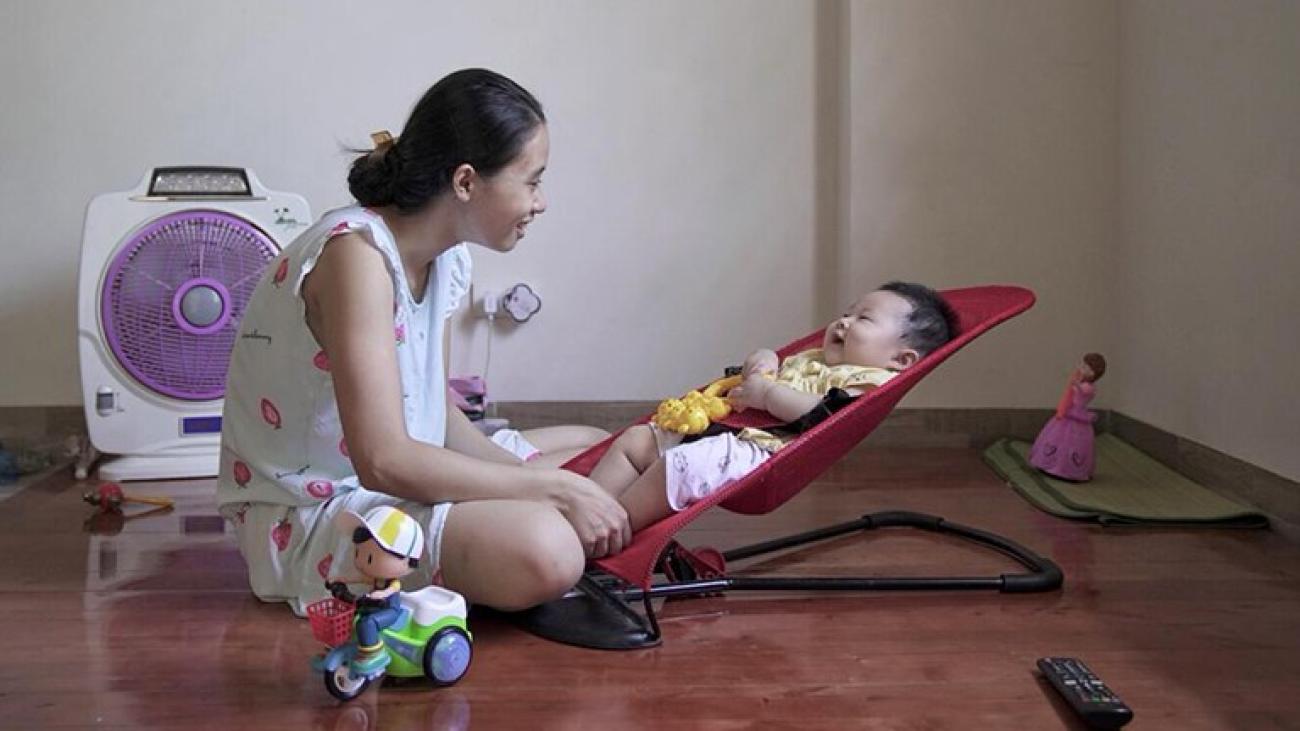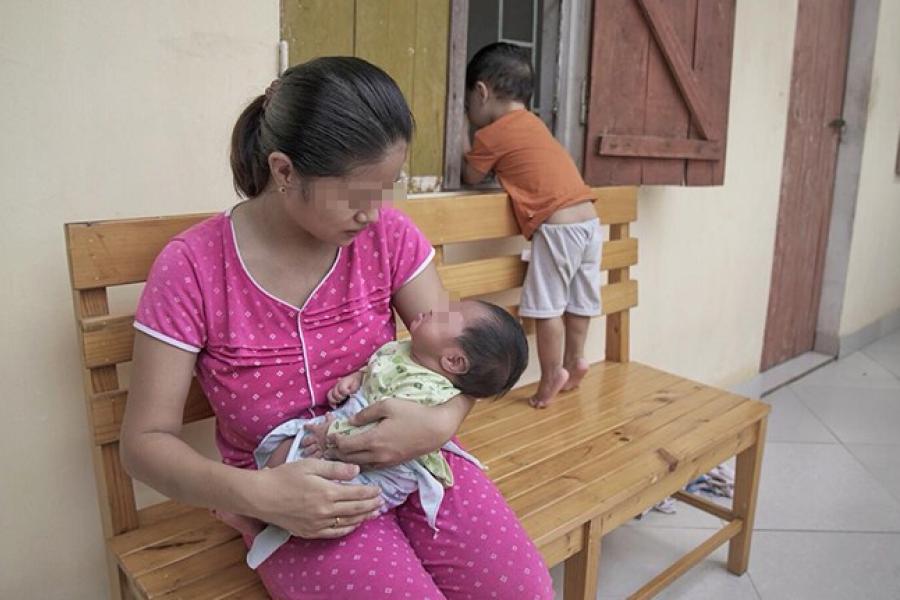How Viet Nam aims to ensure family benefits reach working parents to cope with financial constraints

Viet Nam's social insurance reform looks into options to develop a multi-tiered structure which offers support to working parents of newborns.
Hanoi, Viet Nam - On an abnormally hot day in late summer, a sudden blackout made the atmosphere in a small alley in Binh Xa Village in the outskirt of Hanoi almost unbreathable. Two young women were busy nursing their newborns who both did not seem comfortable with the heat.
Living in two premises so close to each other that they could hear the other baby’s crying, Nguyen Thi Lan and Nguyen Thi Ngoc were both 22 years old and could be seen in their pajamas almost day-long like many other stay-at-home mums in Viet Nam.
Despite many similarities, Lan and Ngoc lived completely opposite lives as the way their homes faced each other. Lan – a single mum with neither income nor insurance – was struggling to feed her two children and paying the rent for an 8sq.m apartment on her own. Meanwhile, Ngoc happily lived with her husband in a 3-storey house – a wedding present from her parents-in-law – and would soon return to her full-time accounting job after 6-month paid maternity leave offered by her company.
However, when they met again, the two new mothers were dealing with the same reality struck – having children is financially challenging.
“Our just-married life was so comfortable with our income as we already had a house thanks to our parents’ support. But with a little girl now, it is not that easy anymore,” said Ngoc who holds a university degree and an insured job with potential benefits for her small family while her husband, a carpenter, does not have a formal employment.
“I have to think twice now before buying anything.”
Both women wished if only they had a regular financial support to cover the costs of feeding and bringing up their tiny angels.
Lan and Ngoc are among 44 per cent of all workers in Viet Nam who are currently experiencing the same challenge – the extra cost of bringing up children, according to a study by the International Labour Organization (ILO).
Among them, Lan’s case is more towards the darker end of the spectrum.
Moving in with her wealthy boyfriend two years ago when she worked as a garment factory worker without a formal contract, they soon welcomed their first baby boy with tremendous happiness. But when they found out she was pregnant with their second child, she also discovered that he was cheating on her.
Completely shattered, Lan moved out, rented the slum-like apartment in this village to live with her first son while waiting for her due date. She no longer worked at the factory and received no financial support from the wealthy boyfriend.
“I have been using all my savings to pay the rent and childcare fee for my son – both about VND 2 million (around USD 95) per month. My aunt brings us some food every day. But since this little girl was born, I have had to also buy formula which is costly as I don’t have any breast milk … possibly because I have been under-nourished,” she said throwing a sorrowful gaze at her 20-day-old infant whom she intended to leave with her aunt in two months’ time to go back to work.
Social protection as systematic support to families
People can never anticipate their lives changing like that so abruptly. That’s why the Joint SDG Fund on Social Protection aims to support Viet Nam in bettering the social protection system and extending social care services and benefits to cover vulnerable families and informal workers to make sure that no life challenge pushes people into poverty.
If Lan had ever known she would go on that downward spiral, she would not have left her factory job. She even wished the factory had paid social insurance for her, so she could have had at least maternity benefits and health insurance for herself and the baby.

In Viet Nam, around 44% of uninsured workers have children.
Of all working parents in Viet Nam, more than half – or 56%– are considered insurable under the state’s existing regulations of Viet Nam Social Security. Moreover, according to ILO Recommendations 202, income security for children’s access to nutrition, education and care is considered one of the four basic social security guarantees. The Joint SDG Fund Social Protection Programme is aimed at a system-wide transformation to reach 80% of the population including women, children, older people, people with disabilities and ethnic minority groups through a multi-tier system.
“There is ample evidence from around the world that social protection for families and children not only reduces poverty, but supports better nutrition and health, improves school attendance and performance, reduces the risk of abuse, maltreatment and child labour, and set the children up to be happier and more productive workers and citizens in the future,” said Betina Ramirez Lopez, social protection officer of the ILO in Viet Nam.
Once rolled out nationally, the Vietnamese Family Benefit and Joint Programme support with multi-tiered expansion strategy and gender lens in Viet Nam would complement additional provisions such as maternity leave and health insurance already available to workers. Taking advantage of this opportunity can set Viet Nam on a path to developing a coherent and well-designed family support mechanism within the emerging social security system – one that fits for a rapidly growing middle-income country, creates happiness to all workers, and brings the smile back to the new mums like Lan and Ngoc.


